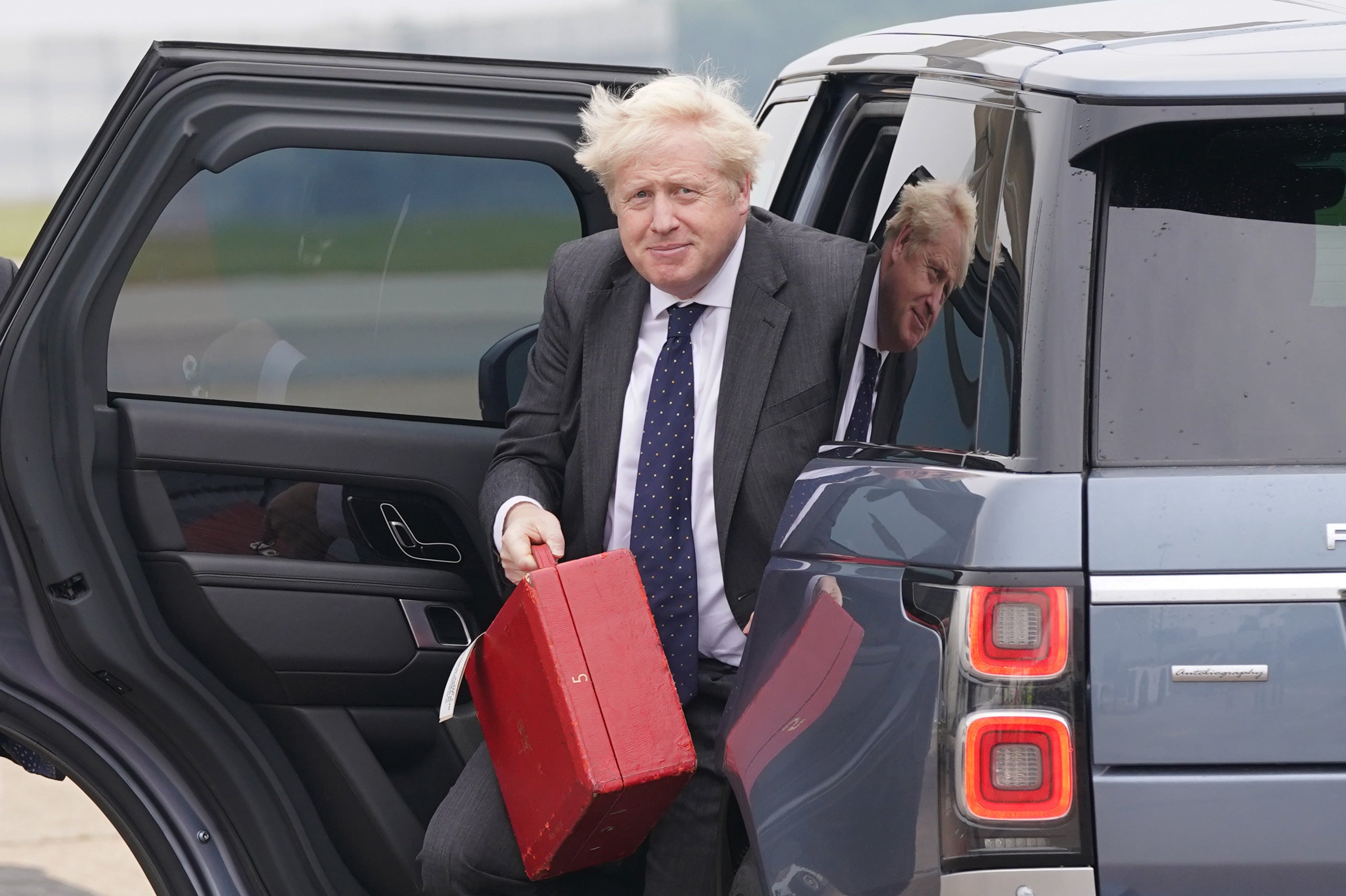Boris Johnson avoids showdown on universal credit cut as rebel amendment rejected
Rebel tells government: ‘Now is not the time’ to reduce benefit payment

Your support helps us to tell the story
From reproductive rights to climate change to Big Tech, The Independent is on the ground when the story is developing. Whether it's investigating the financials of Elon Musk's pro-Trump PAC or producing our latest documentary, 'The A Word', which shines a light on the American women fighting for reproductive rights, we know how important it is to parse out the facts from the messaging.
At such a critical moment in US history, we need reporters on the ground. Your donation allows us to keep sending journalists to speak to both sides of the story.
The Independent is trusted by Americans across the entire political spectrum. And unlike many other quality news outlets, we choose not to lock Americans out of our reporting and analysis with paywalls. We believe quality journalism should be available to everyone, paid for by those who can afford it.
Your support makes all the difference.Boris Johnson has avoided a potentially humiliating Commons showdown on cuts to universal credit — just weeks before claimants’ payments are reduced.
The Independent understands the speaker, Sir Lindsay Hoyle, has not accepted the rebel amendment put forward by Conservative MPs, including the former Tory leader Iain Duncan Smith, calling for the £20-per-week uplift to be maintained.
While a defeat would have been non-binding on the government, the MPs had sought to use legislation on the annual uprating of pensions being debated on Monday to highlight the controversial issue in a Commons vote just three weeks before the cut takes effect.
Conservative disquiet over the decision to end the uplift has been growing over the summer months, but Boris Johnson and the chancellor, Rishi Sunak, have repeatedly rejected calls for a re-think.
One of the rebels and senior Conservative MP Damian Green told the BBC “now is not the time” to reduce the benefit, saying “we are clearly coming into a huge problem for the cost of living” amid concerns over energy prices.
And on Monday, Mr Johnson’s former senior adviser, Dominic Cummings suggested there was a “70%” chance of a U-turn on universal credit, with the money taking from a “long term investment pot”, as he suggested No 10 “can’t resist media pressure”.
Earlier, Downing Street insisted, however, that the £20-per-week cut in universal credit would go ahead as planned — despite concerns over the increase in energy bills putting further pressure on low-income families across Britain.
The prime minister’s spokesperson said the uplift, which was introduced at the onset of the pandemic, was “always temporary” and had been designed to “help claimants through the economic shock and toughest period of the pandemic”.
It comes as more than 40 charities supporting young people wrote to the chancellor demanding the decision to end the uplift this autumn is reviewed, warning of the risk of “repeat homelessness” for under 25s.
Organised by the charity Centrepoint and the national movement End Youth Homelessness, the letter points to “grim” research, with many struggling to pay rent and bills while seven in ten were worried about how they would afford food and other essential if the cut goes ahead.
“The end of the uplift will represent a financial challenge for all universal credit claimants but, for the young people we support, it will leave them facing impossible choices, again forced to choose between bills and food and at risk of repeat homelessness,” they said.
Describing the £20-per-week uplift as a lifeline, they coalition of charities added: “Removing it now, when the effects of the pandemic are still being felt, will rip that lifeline away.”
Highlighting the stark impact of the cut research from the Resolution Foundation think-tank also suggested on Monday that four in ten households on universal credit faced a 13 per cent hike in energy bills in the same month the benefit is cut by over £1,000 per year.
The organisation said that 4.4 million claimants could see their bills increase significantly, with families on universal credit also four times as likely as the wider population to use pre-payment meters for energy.
Jonny Marshall — a senior economist at the Foundation — said: “Low income families are facing a cost of living crunch on several fronts this autumn with energy bills rising alongside wider price increases, while universal credit is also due to be cut by £20 a week.
“Around 15 million households are set to face higher prices next week when the energy price cap is raised. This will be particularly acute for low income families on universal credit, who are four times as likely as the rest of the population to be on pre-payment meters, and therefore face even bigger increases to their bills.”
Join our commenting forum
Join thought-provoking conversations, follow other Independent readers and see their replies
Comments